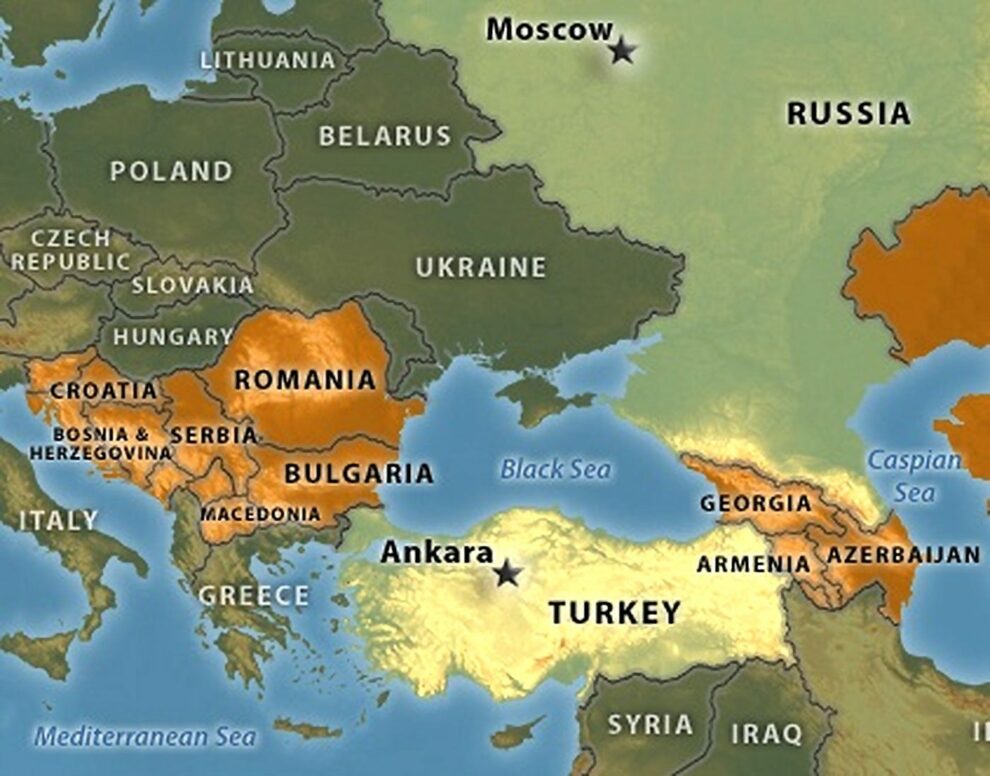On April 13, President of Azerbaijan Ilham Aliyev arrived on an official visit to Sarajevo (Bosnia and Herzegovina). There, Ilham Aliyev met with the Chairman and members of the Presidium of Bosnia and Herzegovina Zelka Cvijanovic, Zeljko Komsic and Denis Becirovic. Despite the short visit, it was recognized as quite successful, as Azerbaijan acquired “another strategic partner in Europe”, and the leaders of the two countries signed a joint declaration on the formation of a strategic partnership between Azerbaijan and Bosnia and Herzegovina.
importance to Azerbaijan’s participation in the Balkans (and in Italy).
“This importance was reaffirmed in October 2022 by the historic visit to Baku of European Commission President Ursula von der Leyen, who called Azerbaijan a revolutionary player in Europe’s energy security. Later, von der Leyen also participated in the opening of the Greece-Bulgaria gas interconnector, designed to deliver Azerbaijani natural gas directly to Bulgaria,” the newspaper notes.
As the authors of the article write, Azerbaijan is currently quite closely cooperating with Bulgaria and Greece in the Balkans: at the end of 2022, it was announced that more than 18 billion cubic meters of natural gas had been safely transported to Greece through the Trans Adriatic Gas Pipeline (TAP). Bulgaria and Italy since the start of commercial operation in 2020. Bulgaria, which has a contract for 1 billion cubic meters of Azerbaijani gas, or a third of the country’s annual demand, wants to increase this volume by another 1 billion cubic meters a year after the suspension of Russian gas supplies to the country.
“However, this is only superficial information, as there is huge potential for other projects, including the construction of the Romania-Serbia gas interconnector, which can also reduce regional dependence on Russia with the help of Azerbaijani gas. North Macedonia has several times expressed interest in importing gas from Azerbaijan, however, this is largely dependent on the completion of the connecting line between Greece and North Macedonia.Moreover, the Ionian Adriatic Pipeline (IAP) currently under construction will be able to transport Azerbaijani gas from Albania to Croatia via Montenegro and Bosnia and Herzegovina before delivering it to Central Europe, provided that the necessary financial and political support is provided.
While the recent strategic partnership declaration, as well as recent statements by the leaders of Azerbaijan and Bosnia, highlight the deepening of bilateral economic ties, including Azerbaijan’s investment in the Bosnian economy and Bosnia’s participation in the Middle Corridor, the visit of President Ilham Aliyev also raised expectations for increased cooperation. in the energy sector. Mushfig Mammadli, deputy of the Milli Majlis of Azerbaijan, noted that both sides agreed to expand oil and gas cooperation in the field of green energy. Thus, Bosnia and Herzegovina is expected to receive 1 bcm from the SPD, which is projected to have a capacity of around 5 bcm, upon completion of the pipeline, with other expected beneficiaries being Albania (1 bcm), Montenegro (0.5 bcm cubic meters). and Croatia (2.5 bcm).
Thus, against the background of the current geopolitical events in Eurasia, Azerbaijan has a historical chance to extend its influence in the Caucasus and the Caspian region both to the east (Central Asia) and to the west (Balkans). Increasing Europe’s energy supply and further development of the most important connection projects (Middle Corridor) will only serve to increase Baku’s aspirations and opportunities. By becoming a stakeholder in the Balkans with the creation of the Southern Gas Corridor and its Balkan TAP segment, Azerbaijan is destined to play a more active role in the region and become a potential hub for transporting critical energy resources to the Balkans and beyond.
Source : MENAFN










